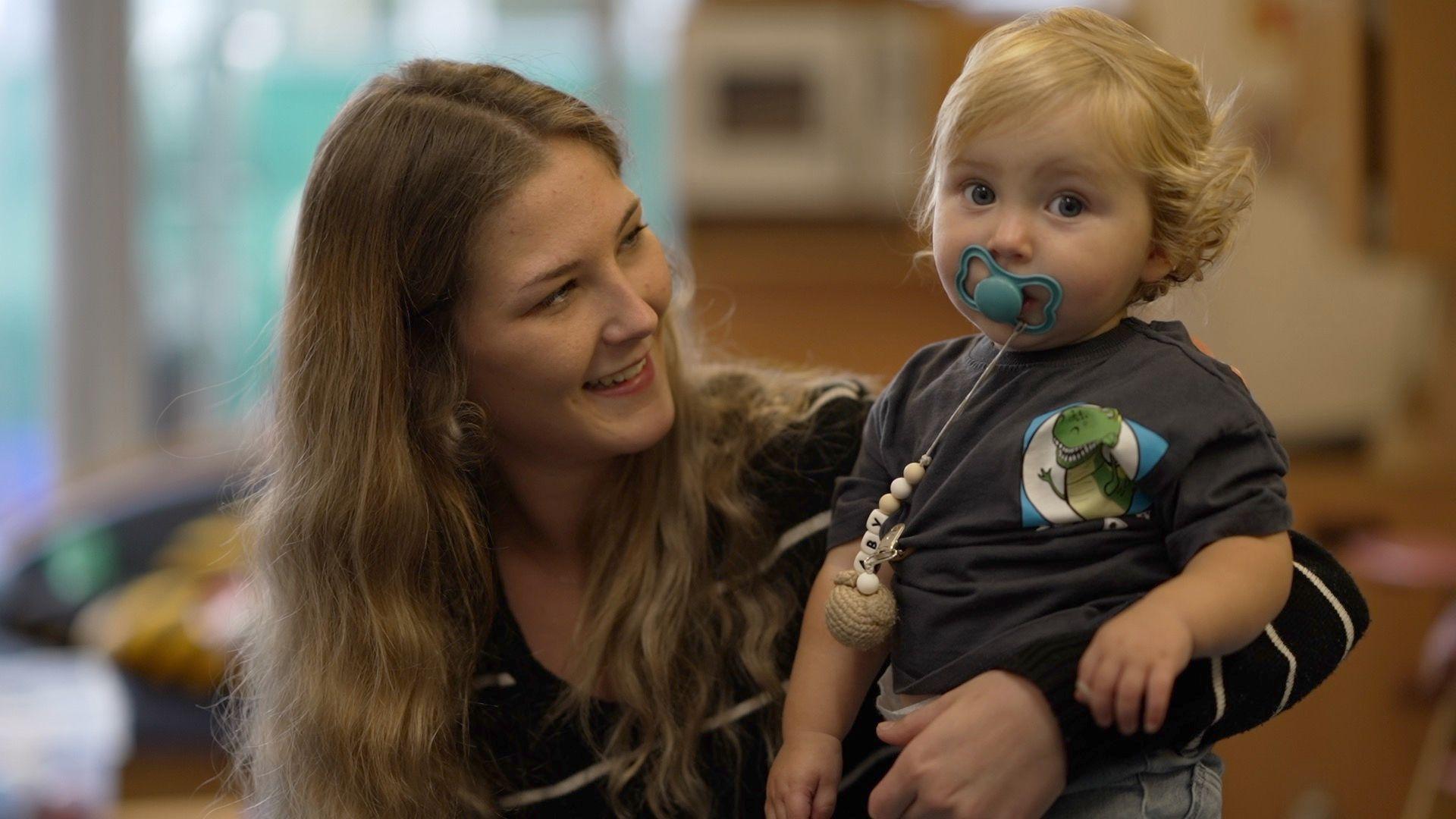'We felt numb' - women share experiences of early motherhood
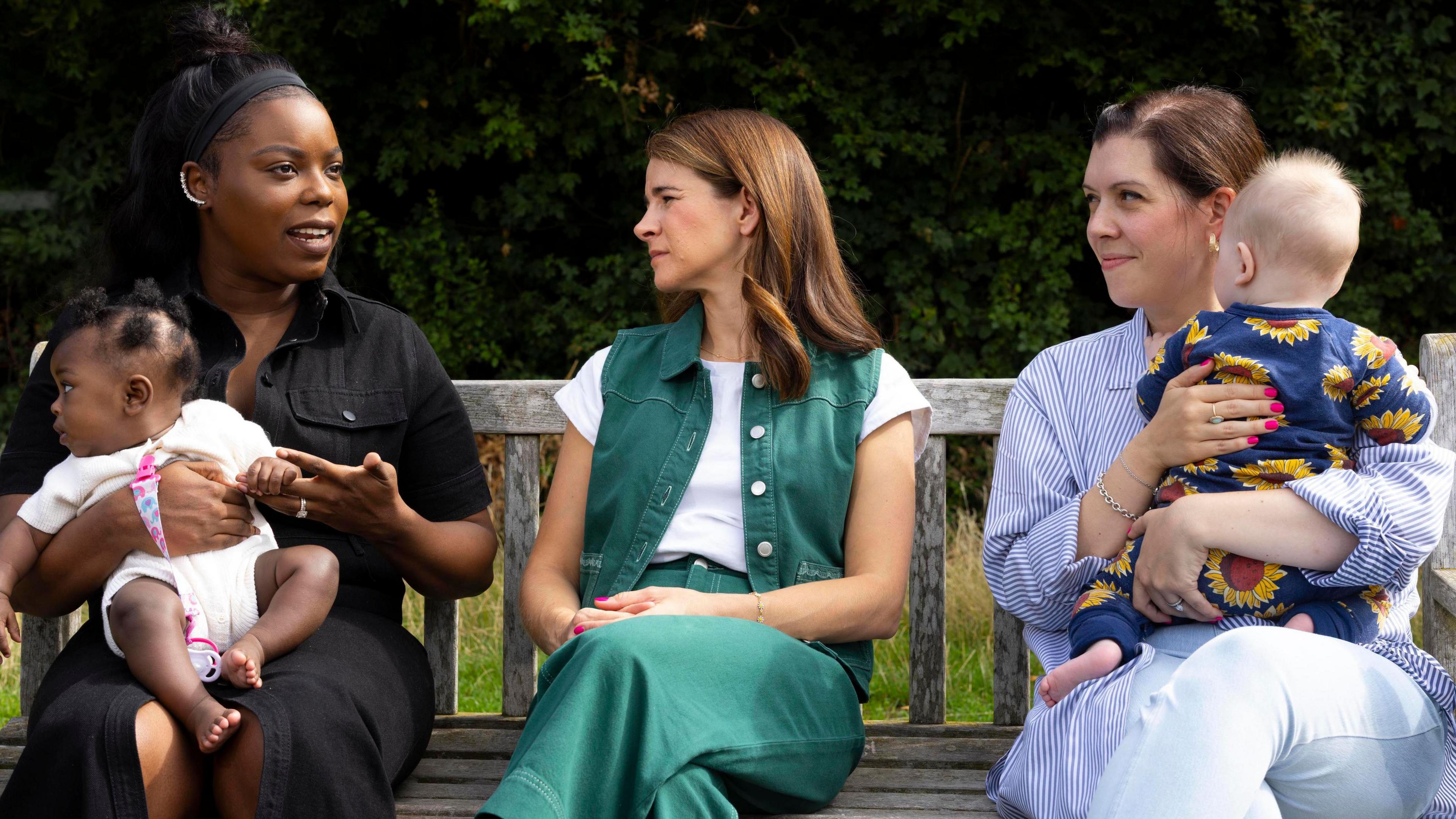
Two women who had their babies six months ago chat about their mental health with Izzy Judd, who is supporting a campaign about the benefits of postpartum therapy
- Published
One word keeps coming up when these mothers describe their experience of new motherhood: numb.
Deborah, Emma and Izzy - successful women and doting mums - had struggled with their mental wellbeing after giving birth. At a time so often portrayed as joyous, celebratory and brimming with love - they felt nothing.
It can sometimes be our body's natural defence to shut down - a way of coping with the overwhelming rollercoaster of hormones, sleep deprivation and societal pressures.
New research suggests one in two mothers found it hard to cope postpartum and 43% considered having therapy - but didn't.
These women are telling their stories to encourage others to seek help.
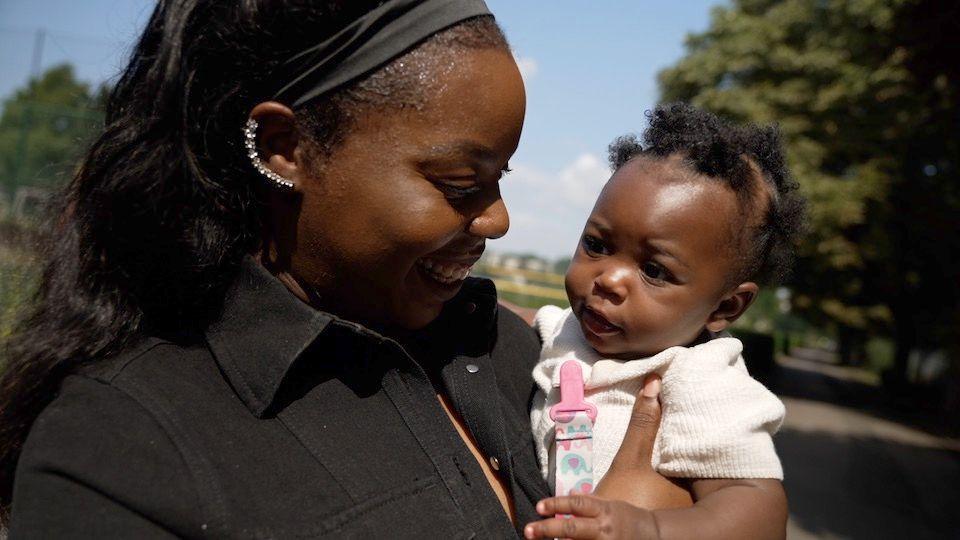
"My kids, they are absolutely everything to me," says Deborah Williams
Strolling through Wimbledon Park in south-west London, five-year-old Zion is chatting about his first year at school, Phoenix, two, is telling funny fibs, and Trinity, who is six months old, grins and giggles. Their dad stays behind the camera, offering attentive support to his wife, Deborah.
It's a vision of family serenity. But a few months ago, it was anything but that.
Deborah Williams recalls a moment, days after the birth of her third child - her mother holding the newborn, the family laughing and dancing. And she felt numb.
She remembers thinking, "I physically cannot do anything other than sit here with a blank stare on my face even though my kids are happy and I'm looking at them and I want to get involved. I need to do something to break this wall down.
"What this could become is me not being emotionally available to my kids and I don't want that reality at all."
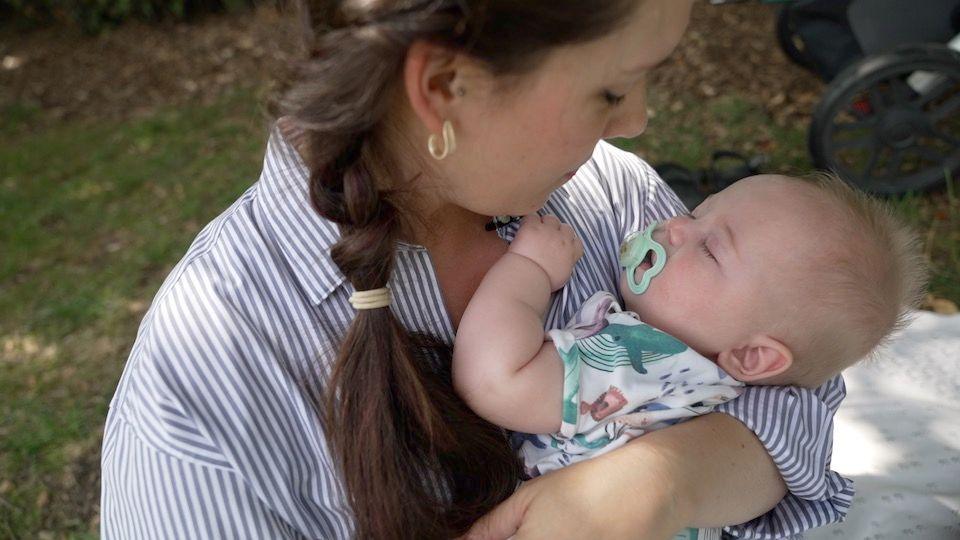
"We're both very lucky that we're here," says Emma Ferguson-Gould, following her son's difficult birth, for which she is being treated for PTSD symptoms
Emma Ferguson-Gould experienced a similar sort of joyless paralysis after the birth of her second child.
"I was unable to get out of my armchair, wasn't enjoying anything, felt very numb. Everything felt very bleak and heavy," she told me.
"I wasn't well enough, I suppose, or strong enough - or in-the-know enough - to advocate more strongly for myself at that point," Emma says. "And it really took getting to a crisis point to be prescribed the anti-depressants and be put in touch with the talking therapist team - and it really made a big difference."
She's curled on a blanket in the shade - her third child, six-month-old Flynn, sleeping peacefully in her arms.
Flynn's birth was traumatic. Because of Emma's history of maternal mental health problems, the health visitors and community midwives had a plan in place. She is working through a course of cognitive behavioural therapy (CBT).
"It's difficult, we're a work in progress," she says. "But I do feel very 'held' this time round - and more stable from that perspective."
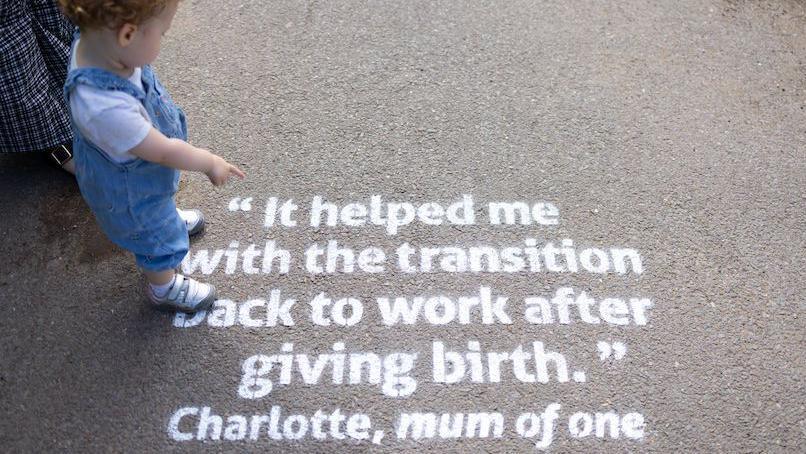
The Positive Steps campaign aims to highlight the benefits of therapy for new mothers
Both women are telling their stories as part of the British Association for Counselling and Psychotherapy (BACP)'s Positive Steps campaign. For its launch, quotes from women who have had therapy have been spray-painted on to a path in Wimbledon Park, one well-trodden by exhausted new mothers.
BACP research has revealed that half of women have found postnatal pressures to have had an impact on their mental health. And two-thirds of new mothers find the bombardment of advice - from social media, family, friends, health professionals or even well-meaning strangers - does nothing to alleviate the stress, adding to what it calls the "motherload".
One in 10 women experience post-natal depression (PND), according the the NHS. Symptoms include persistent sadness, trouble sleeping and feeling unable to cope. Some women can develop postpartum psychosis, a rare but serious mental health illness.
The Positive Steps campaign is supported by Izzy Judd - she and her husband, Harry, from the band McFly, have spoken about their experiences.
"You go out for a walk, you're pushing your buggy but you feel so lonely," she says.
And there is a distinct pressure to succeed. "There's a very glossy image of what new motherhood looks like online and I think that adds the extra pressure."
'Someone alongside with you'
Georgina Sturmer, a BACP registered counsellor, says women often feel there are barriers to seeking help.
"As a new mum we don't have much time or much energy or the resources to dedicate to maybe finding the support that we need and carving out that time - particularly if we need to get childcare.
"There's also a more in-depth emotional barrier a lot of the time because so much has changed in our life and we're struggling with so many new things that it can be really hard to feel like we deserve to find the support," she adds.
But she says therapy can be "transformative" because it involves "someone alongside with you - they're in your journey".
She recommends searching for a qualified therapist through the BACP website, external.
Emma, for whom therapy has been very beneficial, advises mums and dads to make a plan before the baby is born and compile a list of numbers or places to access help. She says to "be honest" at the six or eight-week health visitor check-up. Parents can also contact their GP to arrange therapy through the NHS.
Deborah adds: "When you've got so much to deal with and you've got so many expectations that you're managing, the idea of sitting in a space talking, feels like: 'I could do something in that hour. I could be productive, I could work on my business.'"
"I just want to encourage as many mums as possible - if you need the help, ask for it. I can honestly say I was one of those people that said, therapy's not for me - but it's helped me."
If you have been affected by the issues in this story, help and information is available on the BBC Advice Line page.
Related topics
- Published15 October 2024
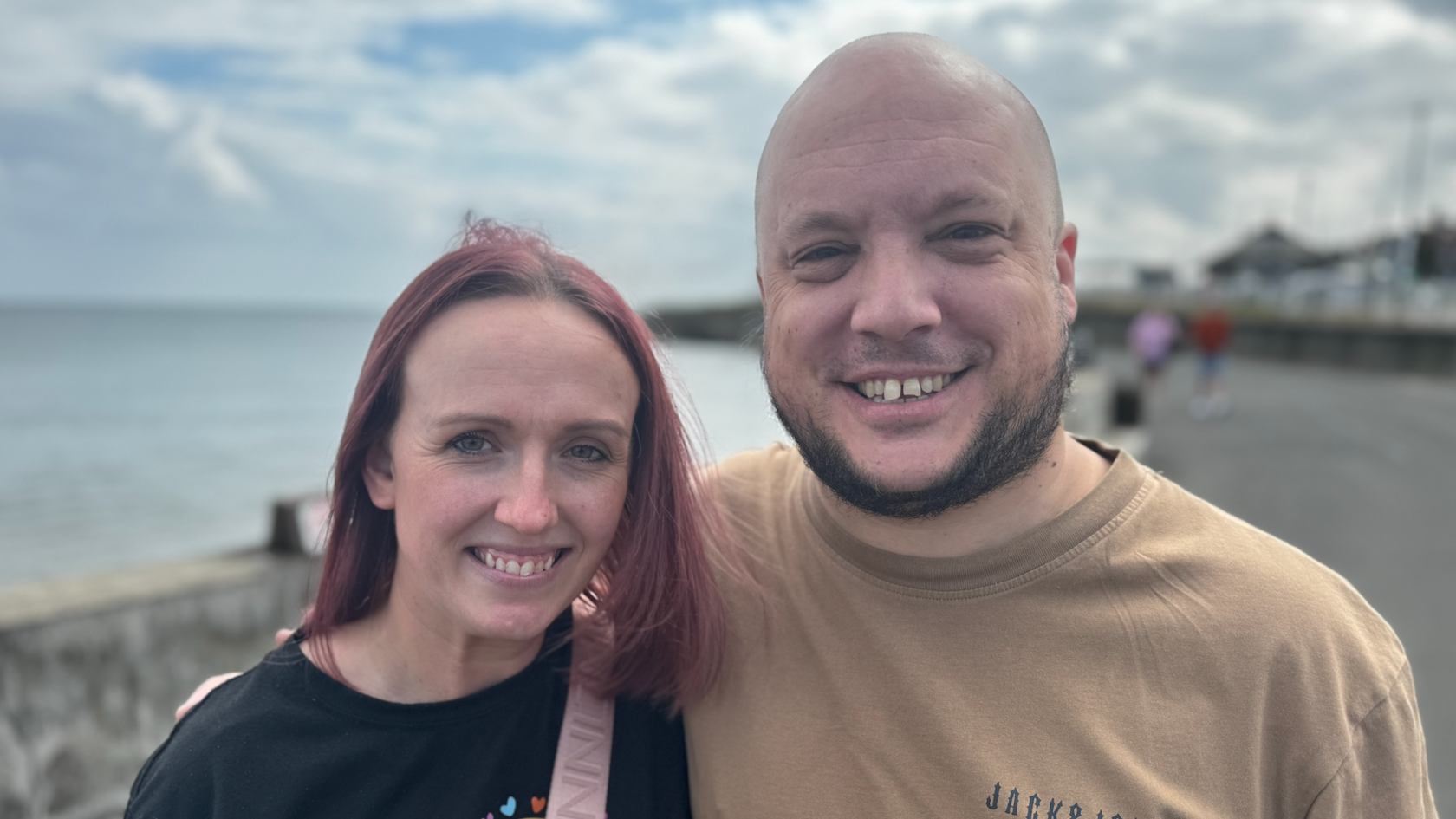
- Published14 November 2024
